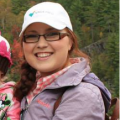Environmental Sciences
Our research in Environmental Geoscience focuses on environmental aspects within the mining cycle, including mineralogical and biogeochemical processes in mine tailings and contaminated soils, development of improved reclamation strategies, and new biogeochemical extraction technologies.
Canada’s economy depends strongly on the extraction and processing of natural resources including mineral deposits. The environmental impacts of the mining mineral deposits are diverse, and include construction of tailings impoundments, release of aerosolic particulate matter on denuded landscapes from process facilities such as mills and smelters, with contamination of both surface- and groundwater by acid and neutral mine drainage from material handling facilities. The environment in the Sudbury region at the heart of the Canadian minerals industry has been impacted by over a century of industrial activities. Thus research in Environmental Earth Sciences at the Harquail School focuses on environmental aspects within the mining cycle and can be divided into three major themes:
I. Mineralogical and biogeochemical processes in contaminated soils and mine tailings from landscape to nanoscales
II. Development of improved reclamation strategies for mining industry impacted soils, tailings, and mine rock storage facitlies
III. Development of new biomining technologies to extract the economic value metals in mine rock and mine tailings
Mineralogical and biogeochemical processes in impacted soils and mine tailings at the nanoscale
All mineralogical and biogeochemical processes in the environment occur at the nano-scale (1-100 nm). Processes at this scale commonly control the fate of metal- and metalloid-bearing contaminants in soils, tailings, sediments and water. Environmentally relevant processes at the nano- and micro- scale include adsorption of contaminants on mineral surfaces, organic matter and nanoparticles, mineral surface–bacteria interactions, transport of contaminant-bearing nanoparticles within soils, sediments and tailings in percolating waters, and the formation, agglomeration, attachment and release of contaminant-bearing nanoparticles.
Developing reclamation strategies for mining lands
The millions of tonnes of tailings and waste rock on active and abandoned base metal and gold mine sites are an environmental concern for the mining industry worldwide. Aspects of Harquail School research focuses on leading-edge Technosol development by creating relatively low nutrient organic residual-mineral mixture covers for waste rock piles and tailings impoundments. These Technosol covers allow improved water management, carbon sequestration capacity and acid mine drainage suppression capabilities while supporting viable indigenous or agricultural plant growth in ecological communities to provide lands for aesthetic, agricultural or forestry use. Development of new biomining technologies to extract metals from mine tailings.
Faculty & Research Scientists
-
Faculty
-
PhD Candidates
-
MSc Students
Additional Resources










